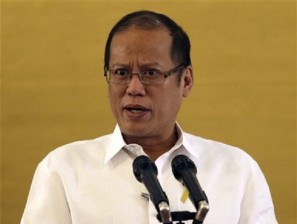The government has adopted new rules on gun possession.
President Benigno Aquino III signed into law on May 29 Republic Act No. 10591, an “Act Providing for a Comprehensive Law on Firearms and Ammunition and Providing Penalties for Violations thereof.”
The new law sets standards and prerequisites for the issuance or obtaining of a license to own and possess a firearm. These include, among other things, that the gun holder should be a Filipino, at least 21 years old, a taxpayer, and has not been convicted of a crime.
Under RA 10591, only small firearms may be registered by licensed Filipino citizens or licensed juridical entities for ownership, possession and concealed carry.
But only members and officers of the Armed Forces of the Philippines, Philippine National Police (PNP) and other law enforcement agencies “authorized by the President in the performance of their duties” can lawfully acquire and possess high-powered weapons.
All licenses should be renewed after two years, or risk revocation of the license and confiscation of the firearm.
Deputy presidential spokesperson Abigail Valte said the applicant for a gun license must have “gained full work occupation or business or has filed an income tax return for the proceeding year as proof of income, profession, business or occupation.”
In a radio interview, Valte disclosed the additional requirements for applicants:
Has not been convicted of any crime involving moral turpitude;
Has passed the psychiatric test administered by a PNP-accredited psychologist or psychiatrist;
Has passed the drug test conducted by an accredited and authorized drug testing laboratory or clinic;
Has passed the gun safety seminar, which is administered by the PNP or a registered or authorized gun club;
The applicant has filed in writing the application to possess a registered firearm;
Police clearance;
Has not been convicted or not currently accused in a pending criminal case punishable with a penalty of more than two years;
Payment of reasonable licensing fees.
“The law also has a provision for carrying firearms outside of a residence or place of business (or) permit to carry firearms. It is stated here (in the law) that a qualified person can apply if his life is under actual threat, or (he or she) is in imminent danger due to the nature of his or her profession, occupation or business,” said Valte.
The law has a list of professionals who are considered to be in imminent danger due to the nature of their profession, occupation or business: Members of the Philippine bar, public accountants, accredited media practitioners, cashiers, bank tellers, priests, ministers, rabbis and imams, physicians and nurses, engineers and businessmen who, by the nature of their business or undertaking, are exposed to the high risk of being targets of criminal elements.
The act takes effect 15 days from its publication in a newspaper of nationwide circulation.
